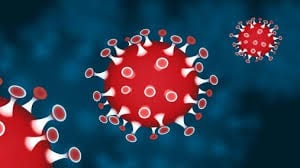
World Health Organization, WHO warns about the new covid variant, Omicron, as more countries report cases of the new variant. The reported cases of the new variant are raising concerns about the pandemic and its consequences ahead.
WHO said on Monday that the global risk of the new Omicron variant is “very high”. In response to the rise in cases, countries are tightening border entries despite outbursts and upsets from some.
Tedros Adhanom Ghebreyesus, director-general of the World Health Organization, told to a special session of the World Health Assembly, “Omicron’s very emergence is another reminder that although many of us might think we’re done with Covid-19, it’s not done with us.”
The new variant emerged in South Africa and is currently emerging in various other countries. Looking at the cases in Portugal and Scotland, it’s evident that the variant has spread to other countries. Currently, health officials in Portugal have detected 13 cases among team members in a professional soccer club. One of them who was tested positive had recently traveled to South Africa. There are 6 reported cases in Scotland. In addition, Ireland has also reportedly detected 10 potential cases, as stated by health minister Stephen Donnelly to Virgin News Media on Monday.
The variant has now emerged in Australia, Belgium, Canada, Italy, Israel, Germany, Hong Kong, Netherlands, and the UK. Spain is one of the latest countries added to the list, after a traveler from South Africa was tested positive, making a stopover in Amsterdam.
The actual cases of the new variant across countries are still unclear. The US hasn’t detected any cases so far, however, the government’s leading infectious disease expert, Dr. Anthony Fauci, and other experts have warned that it could have possibly entered the US. The US has restricted travel from South Africa and seven other neighboring countries. Japan has suspended all foreign visitors, followed by Israel. Morocco has also banned all incoming flights.
Despite the alarms and warnings, there is little understanding about the variant and whether it’s more dangerous than the other variants.
Unfortunately, global vaccination rates are extremely uneven, with citizens of the rich, developed countries already receiving booster shots, whereas other countries are still struggling with the first two doses. According to Tedros, the low-income countries, mostly in Africa, have received just 0.6% of all vaccines.
WHO Covid-19 Technical Lead Maria Ven Kerkhove told CNN on Monday, “The big question is if you put Omicron next to Delta, what would happen? We don’t have that comparison yet. We will get some good data from other countries that are starting to detect this variant”. Therefore, countries must be transparent in reporting their cases and that they aren’t penalized for their reports, she said. “This is why it is so critical that countries continue to report this. And are worried – we are worried about the stigma associated with countries that report this information so forthcoming. You know, it’s really critical that that continues, and that countries don’t feel that they will be penalized for reporting this information”.
The announcement of this new variant has instilled fears in the financial markets, with relatively mixed reactions on Monday. Asian markets fell further, while European stocks and oil prices rebounded, and Wall Street opened higher.
President Joe Biden has considered the variant to be a cause of concern, but “not a cause for panic”. He has announced that no widespread lockdown has been considered and has urged the public to wear masks and receive the vaccination doses, even as a federal judge blocked his administration form that required thousands of health workers in 10 states to get vaccinated.
